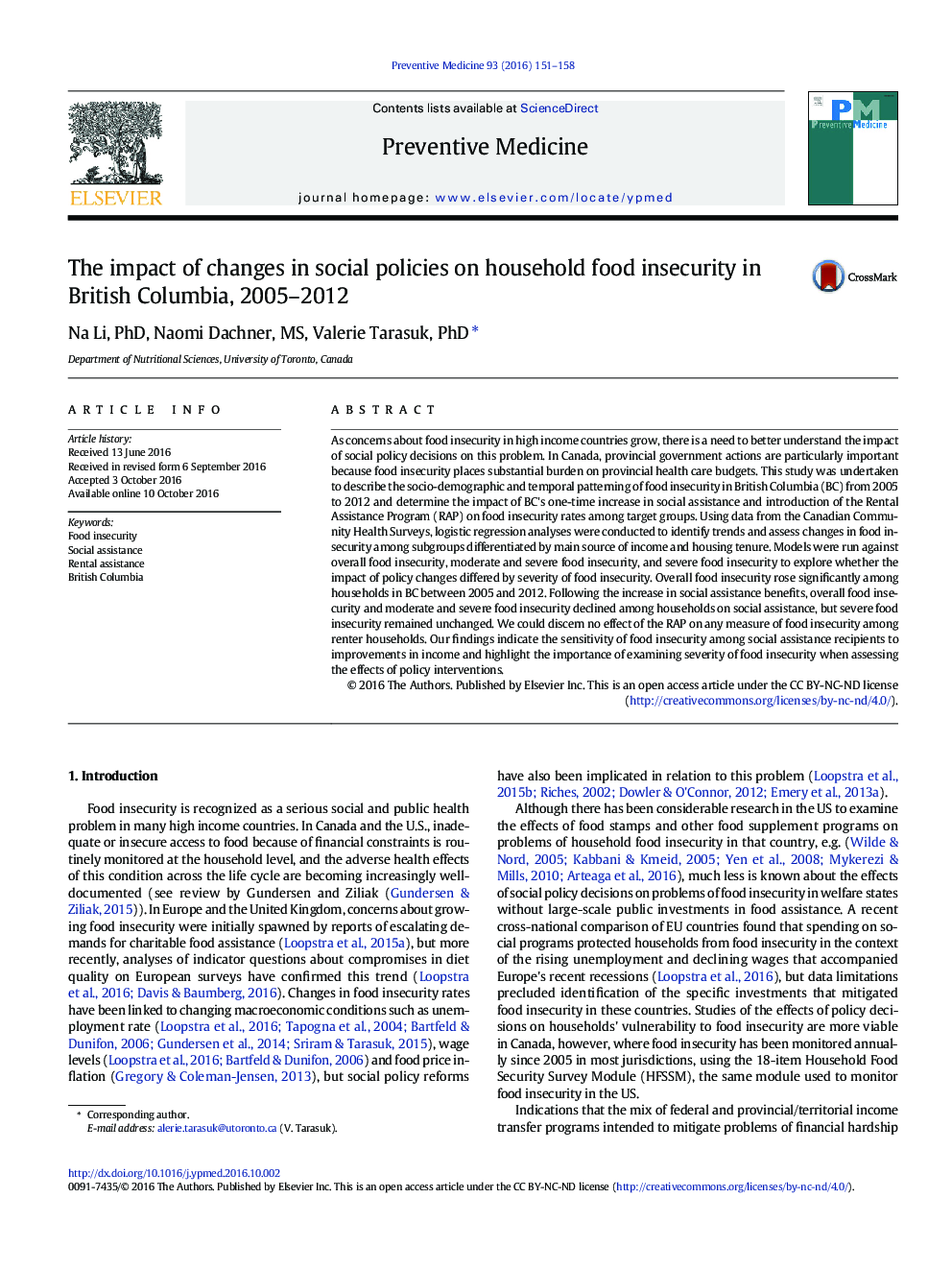| Article ID | Journal | Published Year | Pages | File Type |
|---|---|---|---|---|
| 8693846 | Preventive Medicine | 2016 | 8 Pages |
Abstract
As concerns about food insecurity in high income countries grow, there is a need to better understand the impact of social policy decisions on this problem. In Canada, provincial government actions are particularly important because food insecurity places substantial burden on provincial health care budgets. This study was undertaken to describe the socio-demographic and temporal patterning of food insecurity in British Columbia (BC) from 2005 to 2012 and determine the impact of BC's one-time increase in social assistance and introduction of the Rental Assistance Program (RAP) on food insecurity rates among target groups. Using data from the Canadian Community Health Surveys, logistic regression analyses were conducted to identify trends and assess changes in food insecurity among subgroups differentiated by main source of income and housing tenure. Models were run against overall food insecurity, moderate and severe food insecurity, and severe food insecurity to explore whether the impact of policy changes differed by severity of food insecurity. Overall food insecurity rose significantly among households in BC between 2005 and 2012. Following the increase in social assistance benefits, overall food insecurity and moderate and severe food insecurity declined among households on social assistance, but severe food insecurity remained unchanged. We could discern no effect of the RAP on any measure of food insecurity among renter households. Our findings indicate the sensitivity of food insecurity among social assistance recipients to improvements in income and highlight the importance of examining severity of food insecurity when assessing the effects of policy interventions.
Related Topics
Health Sciences
Medicine and Dentistry
Complementary and Alternative Medicine
Authors
Na PhD, Naomi MS, Valerie PhD,
